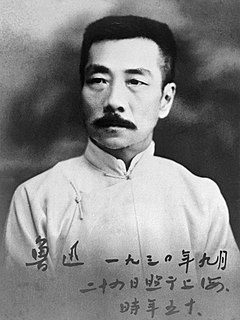A Quote by Ron Currie Jr.
I haven't written a whole lot of nonfiction, but what I have written leads me to believe that it's an entirely different muscle. The ongoing paradox is that sometimes it's harder to get to the emotional truth of something when you only have the facts at your disposal.
Related Quotes
An illustrator in my own mind - and this is not a truth of any kind - is someone who so falls in love with writing that he wishes he had written it, and the closest he can get to is illustrating it. And the next thing you learn, you have to find something unique in this book, which perhaps even the author was not entirely aware of. And that's what you hold on to, and that's what you add to the pictures: a whole Other Story that you believe in, that you think is there.
The Bible is a wonderful book. It is the truth about the Truth. It is not the Truth. A sermon taken from the Bible can be a wonderful thing to hear. It is the truth about the truth about the truth. But it is not the truth. There have been many books written about the things contained in the Bible. I have written some myself. They can be quite wonderful to read. They are the truth about the truth about truth about the Truth. But they are NOT the Truth. Only Jesus Christ is the Truth. Sometimes the Truth can be drowned in a multitude of words.
It's different every time you write. Sometimes it might be harder than it was the day before. I don't like forcing it, but sometimes, if you force it a little bit, it helps you to push forward, and you get inspired in a way. I've written songs in an hour. And there are songs that have taken me six months.
Many writers write across difference of one kind or another. Sometimes the difference is large and recognizable: gender, or race, or religion, or sexuality. And sometimes the differences are smaller. ... Where authors get into trouble is in trying to make those different characters stand in for whole groups of people, or for creating characters only to fetishize or explore their supposed otherness. Your character can be wildly different from you, as long as he's written with respect and, moreover, specificity.
You can't ask the guy with the checkbook to always be the person. So, we actors have to try. And believe me, it's not just young people who are struggling with this, trying to get things of substance made because of the proliferation of technology that it's just harder and harder to get things that really matter made. But they are being done and you just have to fight the good fight and try to... if you have something that you have written, you have to do your best to try to get it made in whatever way you can.
Fiction and nonfiction are not so easily divided. Fiction may not be real, but it's true; it goes beyond the garland of facts to get to emotional and psychological truths. As for nonfiction, for history, it may be real, but its truth is slippery, hard to access, with no fixed meaning bolted to it. If history doesn't become story, it dies to everyone except the historian.
We who preach and write, do so in a manner different from which the Scriptures have been written. We write while we make progress.We learn something new every day. We speak as we still knock for understanding...If anyone criticizes me when I have said what is right, he does me an injustice. But I would be more angry with the one who praises me and takes what I have written for Gospel truth than I would be with the one who criticizes me unfairly.
I never felt like a happy-go-lucky ingenue to begin with. And parts are written better when you're older. When you're young, you're written to be an ingenue, and you're written to be a quality. You're actually not written to be a person, you're written for your youth to inspire someone else, usually a man. So I find it just much more liberating.
Frankly, I get much more sensitive about what's written about me than how I look in a photo. I'm so used to people seeing my image in plays and films that what they think about how I look is none of my business. If they says, "Hey, he doesn't look good," I'm like, Whatever, because I know I look different from day to day. But if you're up there putting your heart into something and people reject your performance, that's very painful. The written word can kick your ass.
I've written with people who aren't like me, then I've written with people who totally get it. It's like a blind date, and you never know what's going to happen. But it's really cool because they learn from you, and you learn a little bit from them. And sometimes it works out, and sometimes it doesn't.
I believe that what we want to write wants to be written. I believe that as I have an impulse to create, the something I want to create has an impulse to want to be born. My job, then, is to show up on the page and let that something move through me, in a sense, what wants to be written is none of my business.


































